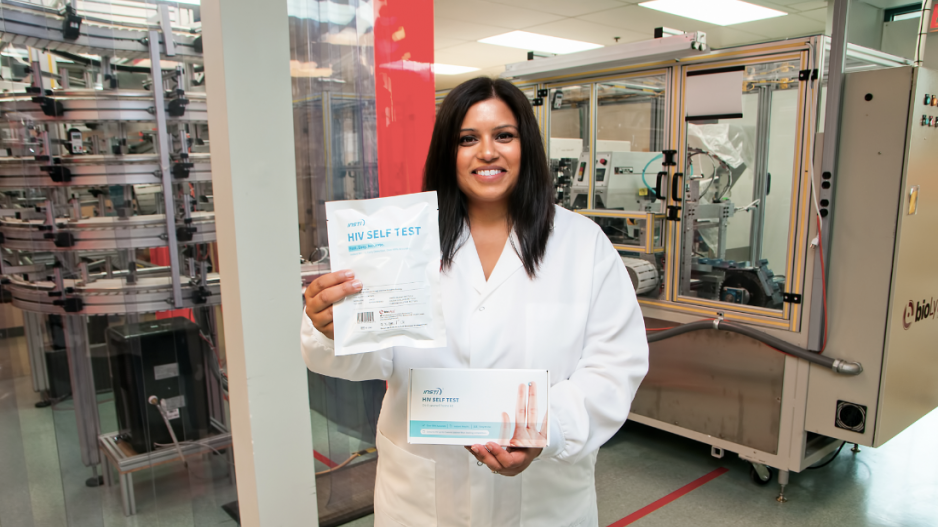A made-in-B.C. innovation available for years in Europe and Africa has been given the greenlight to offer Canadians rapid, self-administered HIV tests.
BioLytical Laboratories Inc. revealed Tuesday (November 3) it now has permission from Health Canada to produce and sell its INSTI HIV self-testsin its home country.
The Richmond-based company was previously able to offer its 60-second tests in point-of-care settings in Canada but the new regulatory approval means people can buy them off store shelves and test themselves in their own homes.
The B.C. biotech’s tests have been used by the likes of Prince Harry, who took it during a 2016 livestream on Facebook [Inc. (Nasdaq:FB)] to raise awareness about the rapid HIV tests that rely on finger pricks for blood samples.
“Whether you’re a man, woman, gay, straight, black, white or whatever – even ginger – why wouldn’t you come in and have the test?” the royal said at the time.
While the tests may have been developed in Canada, the country still represents a relatively small market.
Instead, BioLytical initially prioritized Europe — where it received the coveted CE regulatory approval in the mid-2010s — and Africa.
A 2017 study conducted in Kenya showed promise for the African country, where 5.9% of the population has HIV.
Between March and April, the Kenya Medical Research Institute examined 688 participants with varying levels of education and literacy in rural villages that might not have easy access to clinics where they could be tested.
When self-administered, the test was found to have negative readings that were accurate 98.89% of the time, and its positive results were 99% accurate.
While 57.1% of participants either had primary or no formal education, 97% said they found the test instructions easy to follow. Another 97% said they would use it again and 98% said they’d recommend it to a partner.
The INSTI test was originally meant for point-of-care use for community-based organizations before it expanded into hospitals, prisons, university health clinics and pharmacies.
But BioLytical's former CEO Livleen Veslemes told BIV in 2017 budget cuts to health authorities throughout the globe meant not everyone was able to access the INSTI point-of-care tests so readily, creating an impetus to develop the self-test.
“It really lessens the burden on the health-care system when only those testing positive are going in for confirmatory testing,” she said.
The company has also tapped federal funding to develop its own 60-second COVID-19 antibody test.
The novel coronavirus tests were granted the European CE approval last month after Ottawa provided $633,000 back in May.
“We have so much experience with this [INSTI] platform and we know how accurate it can be, we know how simple and easy-to-use it can be. It was a natural fit,” BioLytical chief scientific officer Michelle Zaharik told BIV in the spring, referring to the company porting its expertise with the rapid HIV tests over to the COVID-19 tests.




